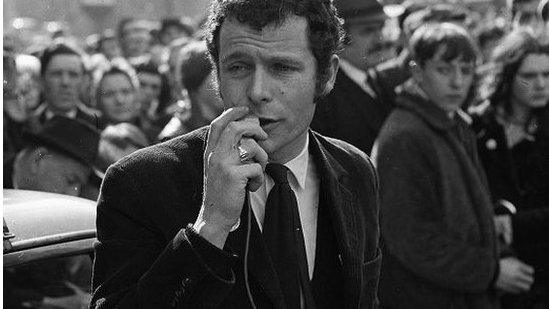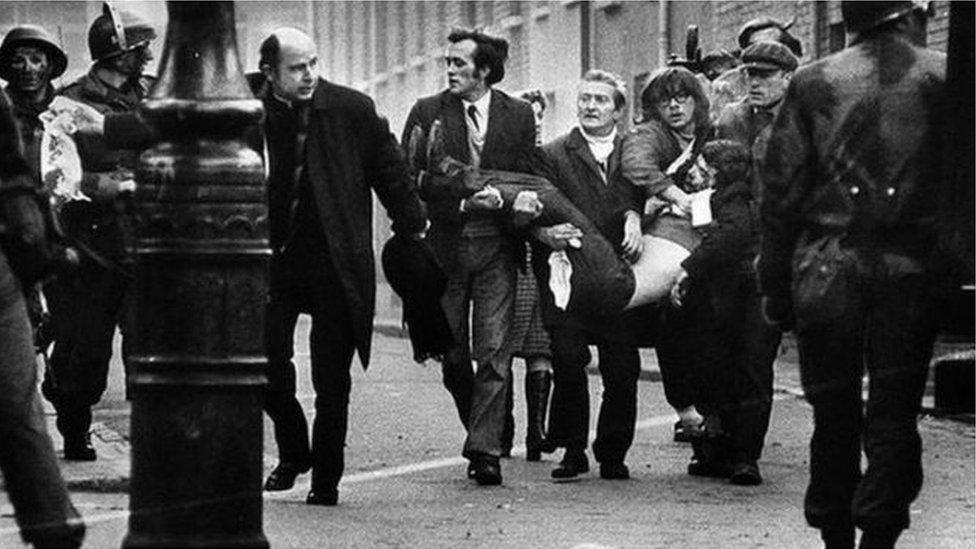Red Lines: Eamonn McCann on Bloody Sunday, border polls and staying positive
- Published
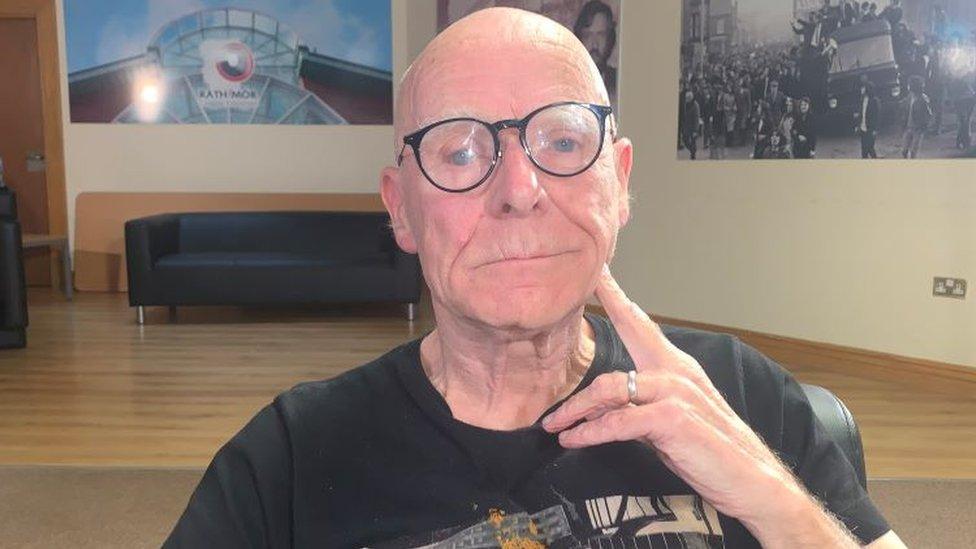
Veteran campaigner Eamonn McCann has spent most of the last 60 years embedded in political activism - but when it comes to one of the biggest debates facing Northern Ireland, the border poll, he has little interest.
As the 80-year-old tells BBC News NI's Red Lines podcast: "Constitutional change is not something I'm passionate about.
"If constitutional change doesn't mean change... on the ground for people's day to day lives, then I'm not sure what the point of it can be."
Describing himself as "not at all a nationalist", he is clear what the dangers of a vote could be.
"A border poll is likely to be make your choice between orange and green - or a mixture of orange and green.... it is the wrong question," he says.
It's an intervention that may well cause irritation in some quarters, but that's unlikely to worry a man who has a well-deserved reputation for speaking his mind.
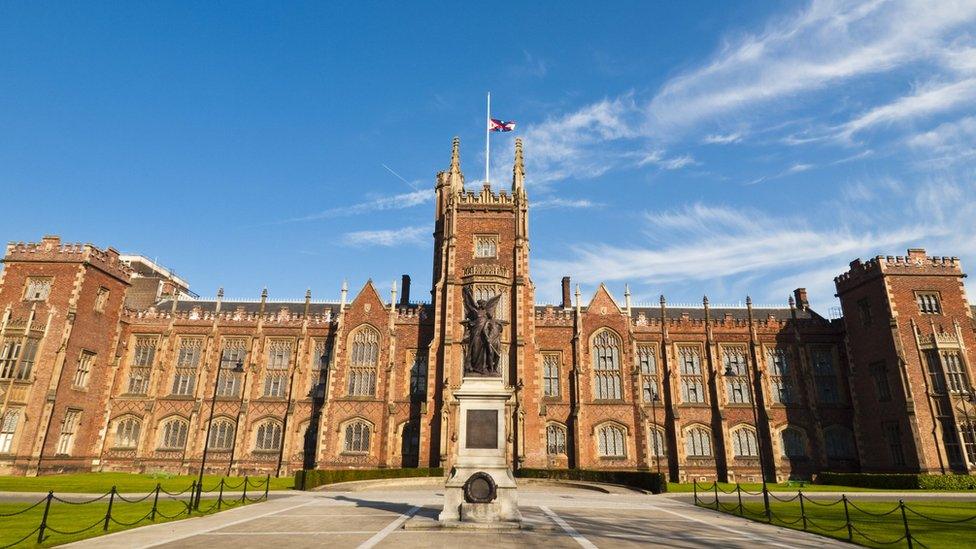
Eamonn McCann believes the manner of his departure from Queens University clearly left a mark
His father's involvement in the trade union movement was a major influence on shaping his political worldview, as was his time at Queen's University in the early 1960s.
The political activism that hit the headlines towards the end of the decade was already "brewing" during his time as a student, he believes, but the manner of his departure from Queen's clearly left a mark.
The authorities refused to allow him to take his final exams because of what he has previously referred to as an "incident of alcoholic rascality".
"I thought in recent years that my getting the boot from Queen's ought to have stayed with me far more than it actually did," he tells me.
"Because the more I look back on it, the more I can see... that was a sectarian decision by the university authorities. The main reason they wanted rid of me was that I was a loudmouth from the Bogside."
Bloody Sunday
So Eamonn McCann moved on to a career of writing, agitating and campaigning.
He was active in the civil rights movement, but it was the events of Bloody Sunday in his home city of Derry on 30 January 1972 that came to occupy so much of his professional and personal time.
He was there on that fateful day when 13 people were shot dead by British paratroopers and his recollections are vivid.
"I still remember every moment of what happened on Bloody Sunday," he says.
"I didn't realise at the time that as I saw people jerking and falling as they ran up Rossville Street...that what was happening was that they were being killed. It just didn't occur to me."
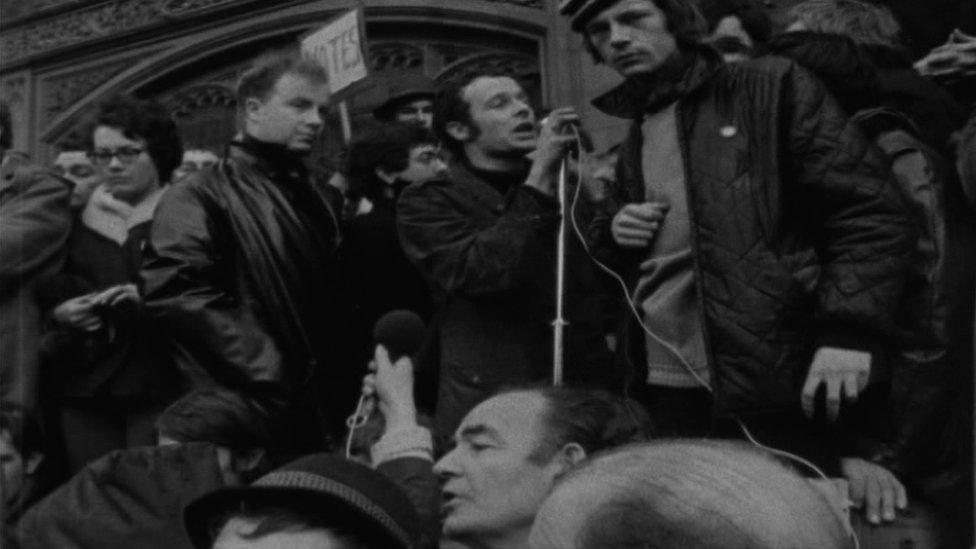
Eamonn McCann (centre) addressing a civil rights march in Londonderry in 1969
He attended almost every day of the Saville Inquiry, which looked into the events of Bloody Sunday, in person.
"Bloody Sunday is the most important thing in Derry in my lifetime in the sense that it changed people.... Bloody Sunday, internally in Derry, changed everything."
He remembers in sharp detail the phone call made that evening to Altnagelvin Hospital by Bernadette Devlin, the then MP for Mid-Ulster, to find out precisely how many people had been killed.
As the list of names got longer, he remembers "the horror, the disbelief, the fear".
The raw emotion is still there. It was a "single, communal event", he says, which left a mark on the community that's still felt today.
On the late-flowering of his political career, he is philosophical.
After 47 years of contesting elections, he finally won a seat for People Before Profit in the Assembly in 2016 - at the age of 73.
While he was pleased to turn years of electoral disappointment into success, he didn't enjoy his time at Stormont.
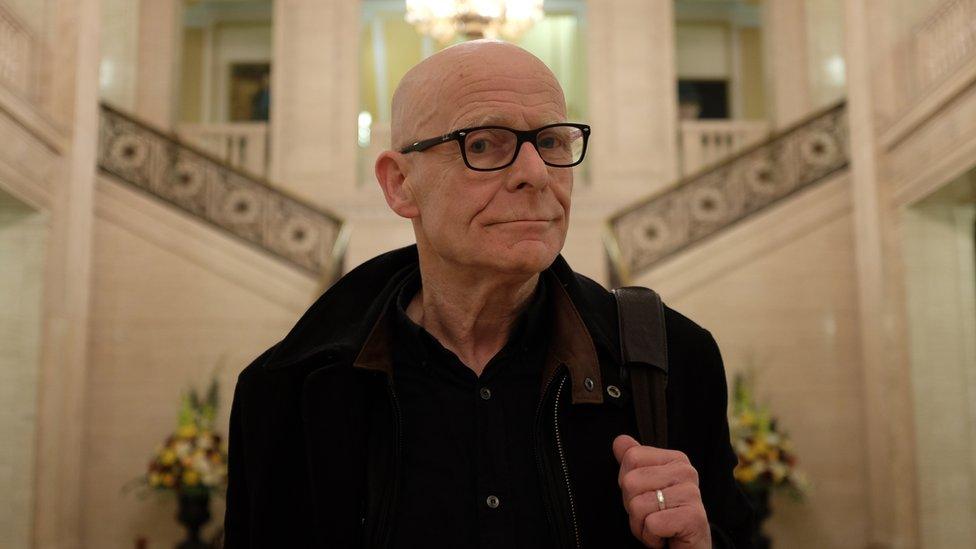
After 47 years of contesting elections, Eamonn McCann won a seat in 2016 - at the age of 73.
The "straitjacket" of the rules and regulations frustrated him.
"I found it very difficult... I found it stultifying, objectionable, offensive almost," he says.
Two years ago he stood down from his role as a councillor in his home city on health grounds.
He remains relentlessly positive about the future - both for Derry and for Northern Ireland.
"I've never met more brilliant people - cleverer, more ready-witted - than in Northern Ireland," he tells me.
So as he looks back on a career that's spanned six decades in civic life, how would he like to be remembered?
"I genuinely don't care," he says - and I believe he means it.
You can listen to Eamonn McCann's Red Lines interview in full on BBC Sounds.
Related topics
- Published1 March 2021

- Published7 October 2018
